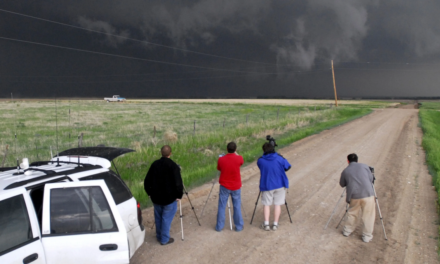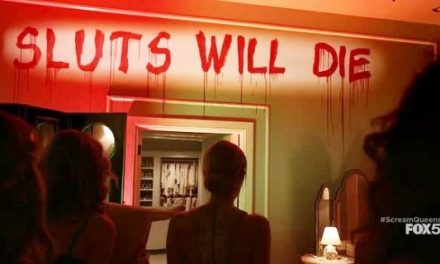In deciding what to blog about this week, I was met by a confluence of events. I have recently visited Florence for the first time and in addition to the city’s beautiful architecture and wondrous history of Renaissance art, I was confronted by a series of other textual images that the city called to mind as I walked through its streets, namely Hannibal (Ridley Scott 2001). Yes, I would think about a serial killer in one of Europe’s most beautiful cities but I blame the movies. In the now classic The Silence of the Lambs (Jonathan Demme 1991), the imprisoned murderer Dr. Hannibal Lecter decorates his cell with drawings, about which FBI trainee Clarice Starling inquires in the following exchange:
Starling: Did you do those drawings, Doctor?
Lecter: Ah. That is the Duomo seen from the Belvedere. You know Florence?
Starling: All that detail from memory?
Lecter: Memory, Agent Starling, is what I have instead of a view.
The sequel Hannibal, based upon the Thomas Harris novel, takes this discussion as its starting point by relocating the now escaped serial killer to Florence, working within the Capponi Library and lecturing at the Palazzo Vecchio. As a result, the film was beautifully, if at times horrifically, shot on location in the city. So as I walked past the Duomo, I could hear Lecter’s voice describing the view from the Belvedere and as I looked upon the Palazzo Vecchio, I remembered the monstrously disturbing murder scene as Inspector Pazzi, the police officer who had identified Lecter, is disembowelled and left hanging from the building’s balcony.


As a result Hannibal Lecter is on my mind, and since returning from Italy, I have been rewatching the films (Silence of the Lambs and Hannibal. I haven’t got to Red Dragon yet). I am also currently watching the second season of the television series Hannibal (NBC 2013-) which has resulted in a curious form of doublethink as I consider two very different incarnations of the subject matter, brought vividly to life by outstanding actors and the distinctive visions of the films’/series’ directors and writer-producer respectively: Jonathan Demme, Ridley Scott and Bryan Fuller.
The final event that has influenced my thinking as I began to write this blog was the announcement last week of the Emmy award nominations for 2014. Much has been made about the strengths and weaknesses of these nominations, and in particular a great deal of discussion of the Emmy Snubs. My facebook feed was filled with outraged comments from friend/fans complaining about lack of a nomination for Tatiana Maslany for her performance in Orphan Black (Space/BBC America 2013-). I am a bit behind with my Orphan Black viewing but I can fully understand why fans of the series are upset by her absence as she does provide a tour-de-force performance in this series. I am, however, equally disappointed by the absence of Hannibal. I should stress, however, that I am disappointed but not surprised. Hannibal the TV series is the next step in a long line of serial killer-based television and procedurals which includes Twin Peaks (ABC 1990-91), Prime Suspect (ITV 1991), CSI (CBS 2000-), Dexter (Showtime 2006-2013), and The Bates Motel (A&E Television Networks 2013-). Last year, I wrote a blog on the serial killer genre in which I discussed the aesthetics of murder in a range of texts including Dexter and Hannibal. I promised to return to Hannibal so here I am. While Hannibal is part of a long tradition of crime TV, it is also like nothing we have seen before and that is why I am disappointed but not surprised by the Emmy Snub. Season two, which I am only partly through viewing on its UK broadcast, has proven even more daring in its depiction of the monstrous mise-en-scène that I discussed last year with:
The body mosaic:

The Man-Monster

[Major spoiler Warning for anyone who hasn’t seen season 2] The Anatomy dissection, in which our bizarre and disturbing appreciation of the beautiful horror of Lecter’s murderous vision was utilized against us when this vision was applied to one of the series recurring characters, Special Agent Beverley Katz.

In a show which features wonderfully disturbing images of horror, this is a masterful creation and it is done to a series regular…not a nameless victim, but a character we have come to know and respect, pulling the rug right out from beneath the audience. While many key characters on Dexter died, it was not at Dexter’s hand – although he was often responsible (ie. Rita). Beverley’s death, however, serves as the moment Will Graham – a character who has so far been able to empathise with killers while safely maintaining his own innocence – becomes morally implicated in Lecter’s crimes. No matter what the authorities believe at the beginning of this season, the audience knows that Will is innocent. But this time, it is Will who places Beverley in Lecter’s path by sharing his doubts about Lecter and asking her to continue the investigation. This is what leads her to her doom, making Will culpable in her death. This murder marks the moment when Will and Lecter are becoming symbiotically intertwined – a characteristic alluded to in season one as they each serve as father figure to Abigail Hobbs. While eventually Will is accused of Abigail’s death, he is innocent as it is Hannibal who manipulates Will’s relationship with Abigail to implicate him. But the same cannot be said of Beverley. And we the audience are equally implicated in Beverley’s death because while we shout for her to get out of Lecter’s apartment and definitely not to explore the hidden room beneath the kitchen — that kitchen — who watching the show didn’t actually want her to continue exploring, to find out what lurks beneath the antiseptically clean work surfaces, the artful decoration and the carefully constructed order that conceals Lecter’s hidden horrors? Beverley pays the price for our glimpse into Hannibal’s true nature.

Beverley’s death also sets Will onto the path to revenge as he looks upon her monstrously deconstructed body. This is an understandable response as Hannibal continues to evade capture by the police but this initial desire for revenge leads to thirst for murder as he becomes increasingly obsessed with Lecter. His first foray into murder is his attempt on Lecter – achieved by using a third party – a fan of the Chesapeake Ripper who he believes Will to be, leading to another beautiful but deadline mosaic, but this time with Hannibal at its centre.

By attempting to kill Hannibal, Will is really following in Dexter’s footsteps as a form of Dark Avenger. For all of Dexter’s guilt, he operates in a moral grey area by adopting Harry’s code. Will is equally, although unknowingly, following Harry’s code. But as the series progresses, the moral grey area becomes less grey and Will’s obsession with Lecter borders on idolatry. As Freddie Lounds suggests, ‘if you can’t beat em, join em’.
This is where the series is revealing its true complexity. Season one provided us a glimpse into Will’s mind and his empathic visions that help him unlock the minds of killers, using his imagination to deconstruct a crime scene layer by layer and put himself in the killer’s position to understand how and why they behave the way they do.
At the end of this trailer for season 1, Will tells Lecter that he just doesn’t find him that interesting and Lecter’ responds: ‘You will’. And indeed he does (well don’t we all?). By the end of the season, Will is yet another of Lecter’s victims. [Spoiler warning] He is alive but, in one of the greatest twists in the show’s narrative reworking of the Thomas Harris source novels and the visual re-imagining of the film Silence of the Lambs, Will is incarcerated for Lecter’s crimes.

By season two Will is obsessed with Lecter and the show’s narrative unfolds as Will’s obsession develops. Initially the series uses Will’s incarceration to go further and further into his mind as he, trapped in prison, attempts to unlock his lost memories of Hannibal’s psychological manipulation. As the series progresses, these forays into Will’s mind become increasingly avant-garde in their execution, often with little grounding to clearly distinguish fantasy from reality, dream from waking state. These dreams reassert the extent to which Lecter’s hold upon Will’s mind is increasing. In Silence of the Lambs, Crawford warns Starling before her first meeting with Lecter, not tell him anything personal, ‘Believe me you don’t want Hannibal Lecter inside your head’. Hannibal the TV series shows us why:


At the time of writing the UK broadcast is incomplete. I do not know where this path will lead Will or Hannibal. I do not know how far the creator’s will stray from the original texts as they have made it clear [Spoiler Warning] – primarily through the shooting of Doctor Chiltern — that anything can happen in this universe. Knowing the books and/or the films offers no comfort or safety on this narrative journey. I do not know how far Will will take his identification with this particular killer or how much control he has over the dangerous game he is playing with Lecter. As the two characters become increasingly, symbiotically, embroiled, it is impossible to know exactly who is in control….who will lose…who will win…or even if these terms apply in this deeply, darkly disturbing world of beauty and horror.

And that is why I was not surprised the series has not been nominated for an Emmy. It offers no easy answers and no comfort. It presents a vision of the world that is bleak and visions of the mind that cause nightmares. It is deliciously disturbing. The pleasures it provides are unsettling and it questions the very nature of evil. But that is why I am drawn to the show and why I think it will haunt us long after the shows that have been recognised with Emmy nominations have been forgotten. It is challenging and impossible to know where it is going and what to expect next. I will be watching the rest of the season with baited breath and then onto season three where I can only image – if I dare — what horrors await me.
Stacey Abbott is a Reader in Film and Television Studies at the University of Roehampton. She is the author of Celluloid Vampires (2007) and Angel: TV Milestone (2009), and co-author, with Lorna Jowett, of TV Horror: Investigating the Dark Side of the Small Screen (2013). She is also the editor of The Cult TV Book (2010) and General Editor of the Investigating Cult TV series at I.B. Tauris.





